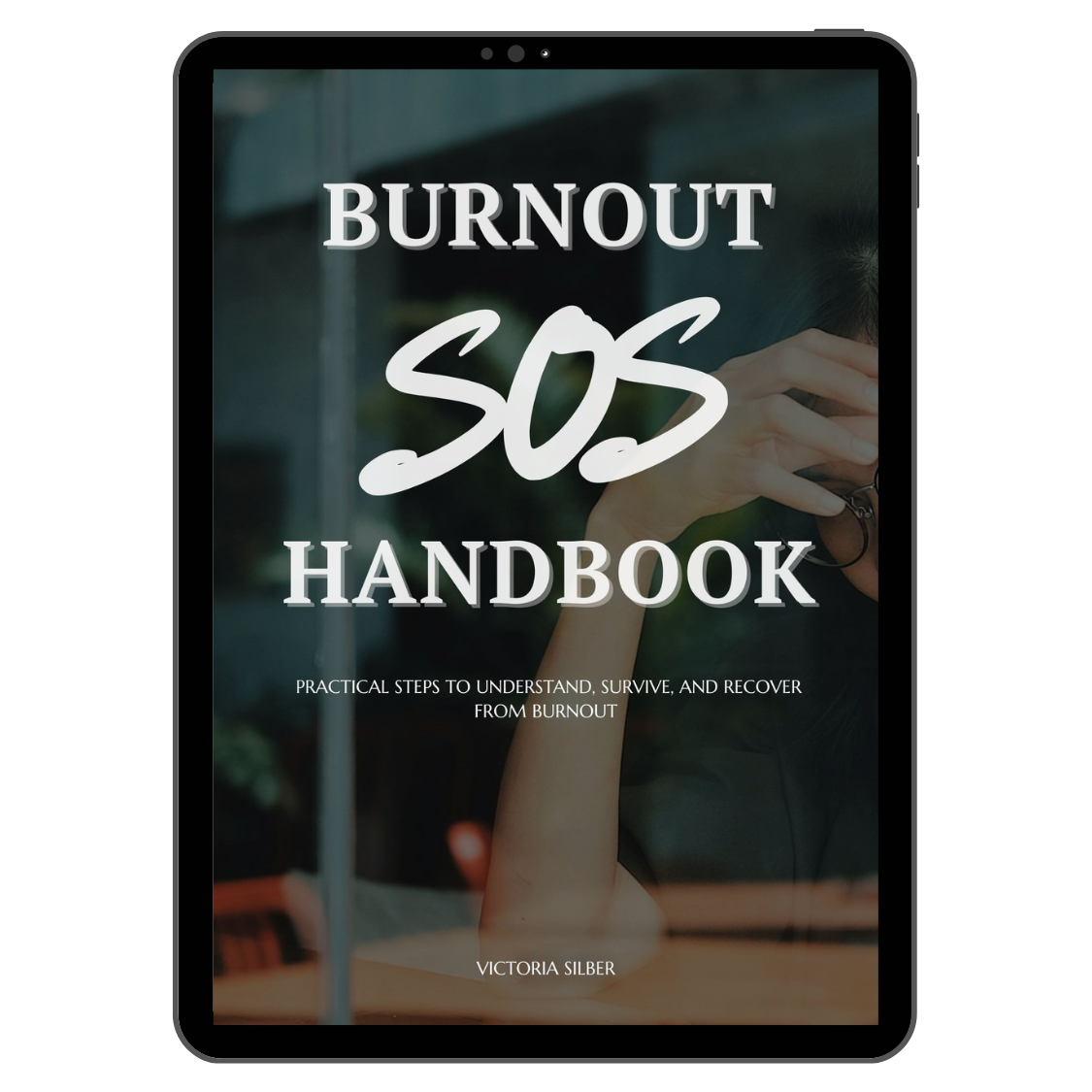Severe Burnout Risk
You're in Stages 4–5 of Burnout
Your assessment shows that burnout is deeply affecting your life right now.
You may feel physically and emotionally exhausted, unable to concentrate, disconnected from work, or even hopeless. Your body and mind are sending urgent signals that something has to change.
This is not your fault. It's the result of prolonged overload.
Why This Matters And Why You Need Support Now
At this stage, burnout isn't just affecting your work performance.
It's impacting your physical health, relationships, mental well-being, and sense of self. You may feel like you're barely functioning.
This is serious. And it requires care.
The good news: recovery is possible. People recover from severe burnout every day. But recovery at this stage requires professional support, time, and structured care.
You cannot think or willpower your way out of this alone.
What to Do Immediately
If you're having thoughts of self-harm, please reach out to a mental health professional or crisis line right away.
This is urgent.
Seek professional support.
A therapist, doctor, or burnout coach who understands severe burnout. This is not optional at this stage—it's essential.
Take time off work if at all possible.
Even a week helps. Your nervous system needs space to stop running in crisis mode. If you can take longer, do it.
Build a rescue routine.
Hydration. Nourishing food. Daily fresh air. Sleep. Small, consistent actions matter when everything feels overwhelming.
Tell someone you trust.
A partner, family member, close friend, or therapist. Burnout thrives in isolation. You need human connection and support.
Reduce decision-making.
Your brain is depleted. Simplify everything you can. Eat the same meals. Wear the same clothes. Eliminate choices that don't matter.
You Are Not Guilty of Anything
You're human.
You've carried more than anyone should alone. This isn't a weakness. This is what happens when the load becomes unsustainable.
Recovery is possible.
You deserve support, rest, and time to heal.
FAQ
How long does recovery take at this stage?
Severe burnout recovery typically takes 6–12 months or longer.
It's not linear—some days are better, some are harder. But with consistent support and care, people do recover.
The timeline depends on your support system, your ability to step back from work, and how much your environment can change.
Do I need to quit my job?
Possibly.
At this stage, your job may be actively preventing recovery. You may need to take medical leave, reduce hours significantly, or step away entirely. Talk to a doctor or therapist about what's sustainable for your health.
Your job is not worth your life.
What if I can't afford to take time off?
Financial stress makes severe burnout worse.
But there are options: medical leave (often covered by insurance or employer), disability benefits, EAP programs, or employer burnout support. Explore what's available to you.
Your health comes first.
Is this permanent? Will I ever feel normal again?
Yes.
People recover from severe burnout and go on to build fulfilling careers and lives. But recovery requires real change—not just rest, but often a shift in how you work, what you prioritize, and what you accept from yourself and others.
Recovery is possible.
It just takes time and support.
Should I tell my employer?
That depends on your workplace and your legal protections.
Some employers are supportive; others aren't. Consider talking to HR, your manager, or an employment lawyer about your options.
What matters most is getting the support and time you need to recover—whether that's internal or external.
What if I'm afraid I can't recover?
That fear is part of severe burnout.
Your brain is depleted and can't see clearly right now. That's why professional support is so important.
A therapist or coach can help you see that recovery is possible, even when it doesn't feel that way.
Next Steps
Book a Burnout Recovery Session immediately. We'll assess your situation, understand what's driving this severe burnout, and create a clear recovery plan. This is a starting point—a chance to get clarity and support.
Or explore our Burnout Recovery Accelerator for a comprehensive, step-by-step recovery program designed for severe burnout. This is structured support for the long journey ahead.
Most importantly: reach out to a mental health professional. A therapist or doctor who understands burnout can provide the clinical support you need right now.
You don't have to do this alone. Help is here. Recovery is possible.
If you're in crisis, please contact a mental health professional or crisis line in your country immediately.

